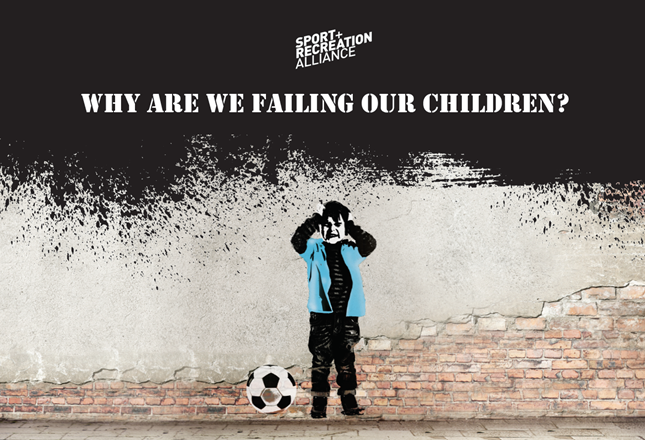
Every child has the right to be active. Every child has the right to experience the feeling of freedom, enjoyment, friendship, escapism, of feeling physically and mental fresh and healthy, and the many other benefits which we know physical activity delivers like nothing else can.
According to Public Health England 93% of children like to be active, yet 80% of girls and 77% of boys are failing to meet the national recommended level of activity. The system is failing them. Society is failing them. We are failing them.
To fight this, we are asking everyone across society to join us in committing to the #RightToBeActive for every child. You can do this by signing and sharing our petition which calls for government to embed this fundamental right in all policy, regulations and legislation.
I’m sure we would all agree that every child has a fundamental right to shelter, nutrition and an education. Surely, they also deserve the opportunity to get active and enjoy all the associated benefits?
Structures vs. Culture
We often get caught up talking about systems, structures and processes and how these are the barriers to our youngsters getting active. That usually comes with a criticism of government and successive governments should shoulder some of the blame for the situation we find ourselves in. One in three children are obese by the time they leave primary school. That is not OK.
However, what we need more than anything is a cultural change. As a society, our relationship with physical activity is broken.
The Solution
There is a role for government to play, no doubt about it. We want to see more than lip service in relation to cross-government working between a variety of departments including Department for Education, Department of Health, Department for Transport and Department for Digital, Culture, Media and Sport. Bringing the weight, and financial muscle, of these departments together would be a huge step in the right direction.
We recently conducted a survey of UK adults and two thirds (62%) of them believe the government will not solve the childhood obesity crisis. My take on that is two-fold.
In the same survey, 72% of us agreed we need wider collaboration between sport, education and the youth sector. And they are right. No one section of our society can tackle this alone.
In our world of sport and recreation, there are numerous examples of excellent initiatives to get kids active. Sadly, this isn’t enough. We need a major cultural shift. Activity, whether that be formal sport and recreation, or informal play, and it really shouldn’t matter which, needs to be at the heart of a child’s life education.
Only then will we see the real change that we so desperately need to deliver for our children and their children. I don’t think it’s an understatement to say that the future of our country depends on it.
It is with immense sadness that the Sport and Recreation Alliance learned of Andy Sutch’s passing last week, and we send our deepest condolences to Andy’s family and friends.
Read moreThis afternoon, the Chancellor delivered her Budget speech to Parliament, outlining decisions on tax and spending.
Read moreAhead of the Chancellor’s Budget statement on 26 November, we take a look a look at the key areas to be aware of and the work the Alliance has been doing lobbying on behalf of members.
Read moreJoining the Sport and Recreation Alliance is pretty simple, but worthwhile!
Register now